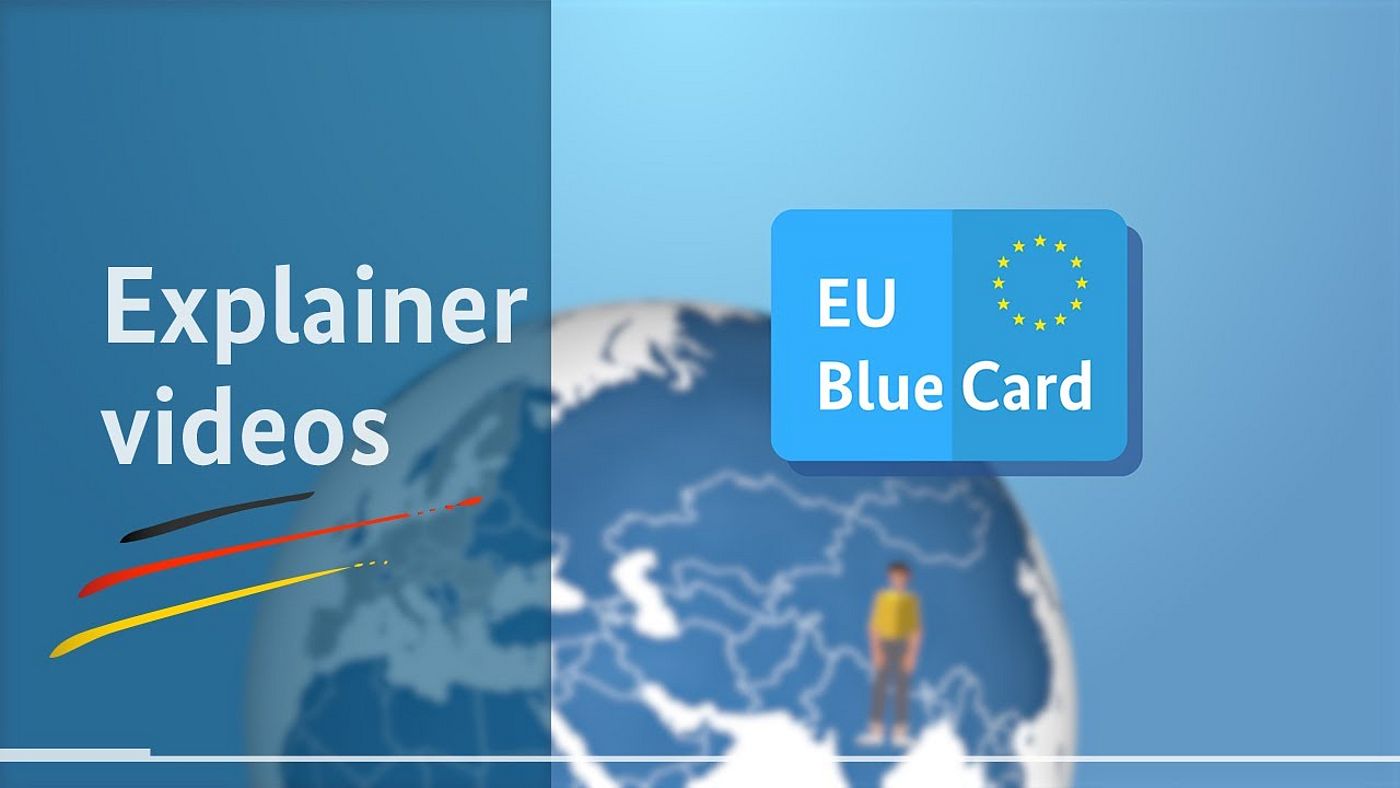
At a glance: EU Blue Card
From the preparations to the application forms: This guide shows you step by step how to obtain the EU Blue Card.

Are you a graduate and have found a job in Germany? Learn about EU Blue Card requirements here.
The EU Blue Card (Section 18g of the Residence Act [AufenthG]) is a special residence title for foreign academics and people with comparable qualifications who want to take up qualified employment in Germany. To find out if you need a visa to enter Germany, see the “Do I need a visa?” section.
The detailed list of bottleneck professions for the EU Blue Card can be found here.
The following applies to new entrants to the labour market: If you obtained your last degree or equivalent qualification less than three years ago, you can also obtain an EU Blue Card if your job offer includes a gross annual salary of at least €41,041.80 (as of 2024). This applies to entry-level jobs in all professions. The approval of the Federal Employment Agency is also required for the visa procedure.
Do you want to work in Germany as an IT professional or manager without a formal qualification? Under certain conditions, you may be able to obtain an EU Blue Card.
Do you meet the above-mentioned requirements? Then you are entitled to an EU Blue Card under Section 18g of the Residence Act [AufenthG]. Find out about the entry and visa process.
In some countries, it is possible to apply online for an EU Blue Card. You can find more information on the digital application process on the Consular Services Portal of the Federal Foreign Office.

Even if you do not meet the above-mentioned requirements for an EU Blue Card, there may be other options open to you. You can apply for a work visa for professionals with an academic qualification under Section 18b of the Residence Act (AufenthG).
If you are an IT professional without a formal qualification, in addition to the EU Blue Card, you may be able to enter Germany under the special regulations for individuals with practical knowledge.

From the preparations to the application forms: This guide shows you step by step how to obtain the EU Blue Card.
The EU Blue Card is issued for the duration of your employment contract, plus an additional three months, and is valid for a maximum of four years. It is possible to extend the validity of this residence title in Germany if certain conditions are met.
After 27 months, EU Blue Card holders can obtain a settlement permit if they can prove that they have German language skills at level A1 according to the Common European Framework of Reference for Languages (CEFR). If language level B1 can be demonstrated, the settlement permit can be issued after only 21 months.
Do you want to live in Germany with your family? As an EU Blue Card holder, this is possible. To find out what you need to consider and what the requirements are, please see the “Family reunification” section.
Are you an EU Blue Card holder looking to change your employer in Germany? This is no problem. You will be able to start your new job with a valid EU Blue Card. However, if you change jobs within the first year of employment, you must notify your local foreigners authority of your new job. The foreigners authority will check whether you still meet the conditions for the EU Blue Card in your new job. If this is not the case, you may be granted another type of residence permit, such as a work and residence permit for qualified professionals.
Let us advise you on your opportunities to work and live in Germany. Our experts will support you with questions regarding job search, visa, recognition and learning German.
You can find out more about the various contact options by clicking on one of the icons in the bar below.
Please switch to a modern browser (e.g. Google Chrome, Firefox or Microsoft Edge) in order to enjoy the best user experience.